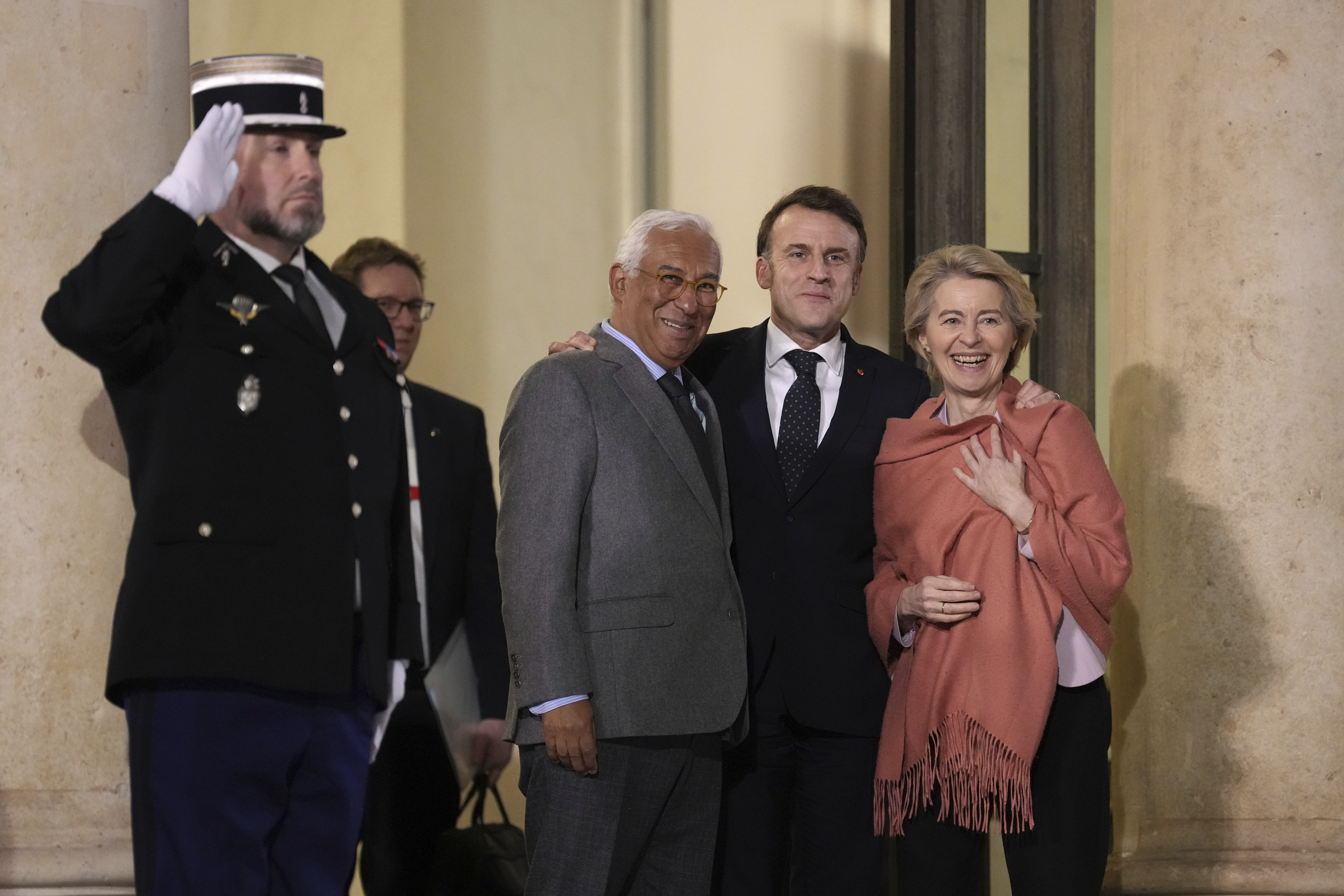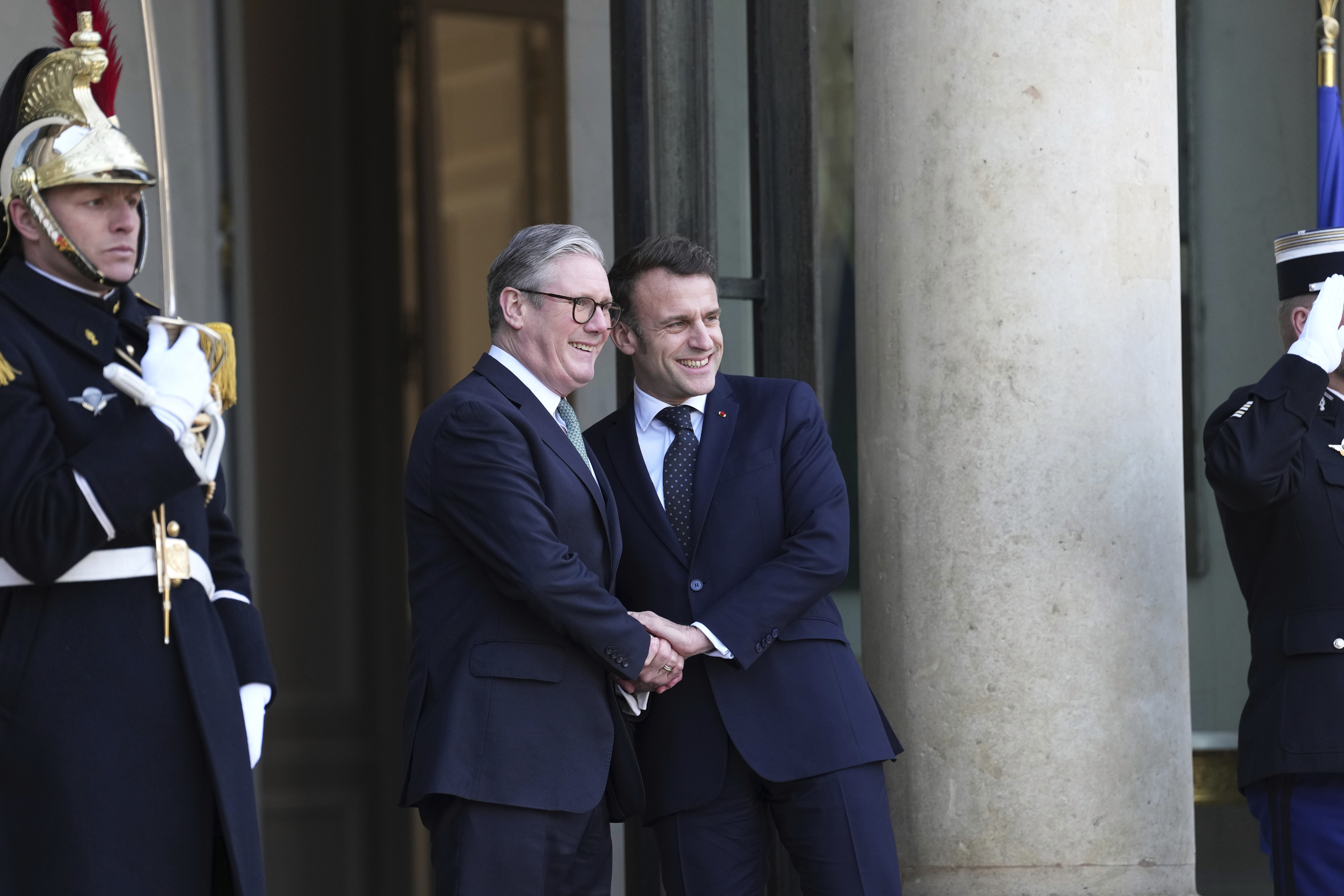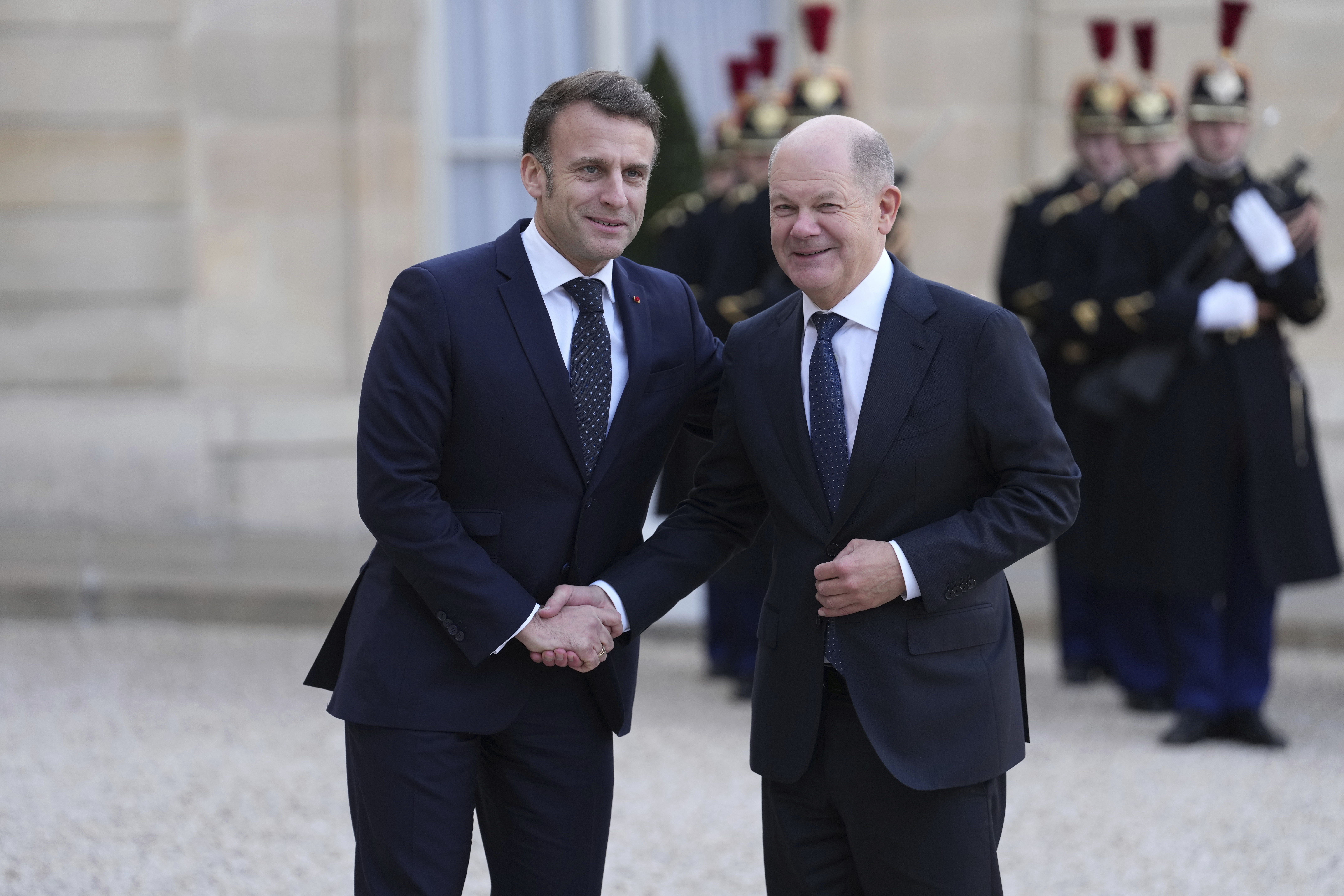
PARIS - In an emergency meeting hastily convened Monday in Paris to address the United States' accelerated moves on the Russia-Ukraine conflict, a dozen European leaders announced their readiness to increase defense spending, reaffirmed their commitment to supporting Ukraine, but remained divided on the possibility of deploying troops to the country.
The informal mini-summit, held on the eve of Russian-US talks scheduled for Tuesday in Riyadh, brought together leaders of the North Atlantic Treaty Organization (NATO) and the European Commission, alongside representatives from European nations including France, Germany, Britain, Poland, Spain, Italy, Denmark and the Netherlands.
More defense spending
"Today in Paris we reaffirmed that Ukraine deserves peace through strength," European Commission President Ursula von der Leyen posted on X after attending the meeting. "Europe carries its full share of the military assistance to Ukraine. At the same time, we need a surge in defence in Europe."
Polish Prime Minister Donald Tusk acknowledged that transatlantic relations and Europe's friendship with the United States is entering "a new phase." "No one should be surprised that today's meeting confirmed that our European partners realize the time has come for a much greater ability for Europe to defend itself," he told reporters.
ALSO READ: US bid to end Ukraine crisis may hit bumps
German Chancellor Olaf Scholz said that European nations are prepared to "spend at least two percent" of their gross domestic product on strengthening the continent's defense. "If European states spend more, Germany supports ensuring that this expenditure is not factored into European budget deficits calculations," he said.
Danish Prime Minister Mette Frederiksen said she expects an agreement on fiscal rules at the next European Council meeting to ensure "all member states can actually increase their defense expenditures."
In an interview on Spanish TV network TVE1, Spain's Second Deputy Prime Minister Yolanda Diaz also backed the need for Europe to look after its own defense.

Sending troops?
Regarding reports that some European countries may send ground troops to Ukraine as part of a "peacekeeping" mission, Scholz dismissed the discussions as "totally premature."
Frederiksen also cautioned that such talks were premature. "There are really, really many things that need to be clarified before we reach this situation, because we are talking about the safety of our own men and women," she said.
Only British Prime Minister Keir Starmer announced that he was prepared to consider committing British forces alongside others -- on the condition of a lasting peace agreement and a US security guarantee.
READ MORE: US VP's speech sparks backlash from EU leaders
"Every country within NATO and the EU has the right to decide whether or not it participates. However, this whole topic has not even been brought to the table yet... It is a question for the future that requires the cooperation at the highest levels," Croatian military analyst Igor Tabak told N1 television on Monday.
"In the current cash crunch, Europe will have to make some tough decisions -- to choose between spending on social programs and investing in defense," Croatian Radio and Television commented.

Uncertainty prevails
Divisions within the bloc could be larger if all EU member states were present in Paris. Earlier on Monday, Slovenian President Natasa Pirc Musar expressed regret that not all European leaders were invited. Meanwhile, Slovak Prime Minister Robert Fico criticized the participation of the EU's top representatives in the meeting, arguing that they lacked a mandate, which "does not help build trust within the EU."
The Paris mini-summit was widely seen as a preparatory step -- or a test balloon -- for the EU summit set for March 20, where European leaders must outline a common position on strengthening the continent's security and increasing its diplomatic influence in Ukraine peace negotiations, which appear to be slipping out of their control.
READ MORE: Macron, Scholz call for stronger Europe to face new Trump presidency
"Ukraine should have confidence in us," Scholz pledged after the Paris meeting, stressing that "no peace of dictate can be imposed on Ukraine."
French daily Le Figaro reported that on the European side, the urgent matter is to secure a seat at the negotiating table -- without even knowing what will be on the menu.
"The European Union must choose between becoming a mere proxy for the United States or breaking free from Washington's increasingly impatient and aggressive new policies to chart its own course. Europe must decide quickly," Croatian Radio and Television commented.



